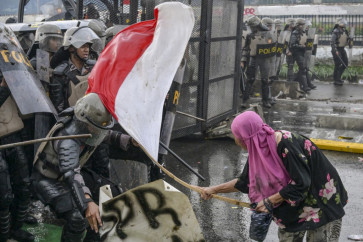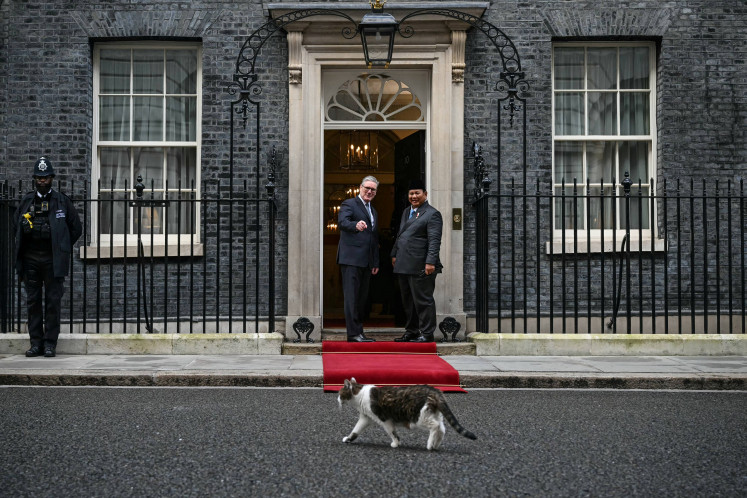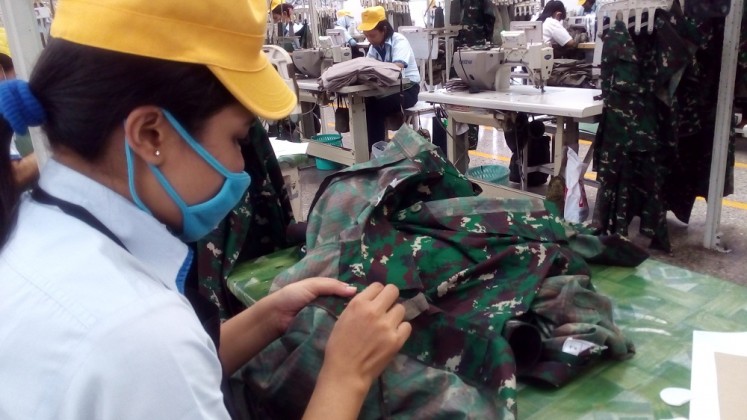Popular Reads
Top Results
Can't find what you're looking for?
View all search resultsPopular Reads
Top Results
Can't find what you're looking for?
View all search resultsPolitical dynasties produce negative consequences: Observers
Soon after the country decided that regional heads should be democratically elected, local political dynasties emerged as a new political force
Change text size
Gift Premium Articles
to Anyone
S
oon after the country decided that regional heads should be democratically elected, local political dynasties emerged as a new political force.
Take Banten Governor Ratu Atut Chosiyah, for example, whose family members hold key political posts in the province.
Her sister-in-law, Airin Rachmi Diany, is South Tangerang mayor. Her daughter-in-law, Adde Khairunnisa, is the deputy speaker of Serang Legislative Council, her stepsister, Ratu Tatu Chasanah, is Serang deputy regent and her stepbrother Tb. Chaerul Jaman is now Serang mayor. Her eldest son, Andika Hazrumy, is reportedly considering running for mayor of Tangerang in this year's election.
Pundits have now begun to ponder whether such a trend is good or bad for Indonesian politics.
Titi Anggraeni, the executive director of the Association for Elections and Democracy (Perludem) is concerned that political dynasties might have negative consequences.
Titi defined a political dynasty as when members of a certain family dominate a country's legislative and executive seats. Political dynasties come about through a phenomenon known political scientists as the 'coattail effect'.
'The coattail effect occurs when positive public appraisal of prominent politicians lifts the popularity of their close friends or family members,' Titi said.
'Because the politician is seen as capable, then the public tends to believe in the competence of his or her inner circle,' Titi added.
Perludem chairman Didik Supriyanto said that political dynasties did not always bring negative consequences. 'Political dynasties are common. In the US, we have the Kennedy and Clinton dynasty,' Didik said.
In the context of Indonesia's immature democracy, political dynasties could have negative consequences. 'The political dynasties can hinder fair competition. A lot of political parties in Indonesia are still very elitist. Because of their closed selection process, favoritism toward family members of the party's chairman can easily set in when they select party executives,' Didik said.
Didik is afraid that political dynasties encourage politicians to embezzle taxpayer's money to finance the campaigns of their family members.
'Party executives might abuse their power to get financial support for their family. They might misuse public facilities for campaigning purposes,' Didik said.
Titi mentioned several 'risk factors' that might cause political dynasties to turn corrupt.
'Prosecutors tend to give lenient sentences to corrupt politicians which might encourage graft to buy popularity for family members,' Titi said. 'The permissive attitude towards corruption will cause them to tolerate corrupt financing of campaigns for family members. They think it's okay for politicians to use public facilities and taxpayers' money, when in fact these practices are not proper,' she added.
The House of Representatives has deliberated a bill on regional elections, which prohibits family members to run for the incumbent's seat until someone else serves that function for at least one year.
Titi believes the regulation deprives citizens of their constitutional rights. 'The constitution guarantees equal rights for all citizens to run for office. A person can file a lawsuit if he or she is deprived of that right,' Titi said.
Titi believes the rule will not discourage corrupt dynasties since it does not solve the root causes of the problem. 'This regulation is a shortcut. They have not made sufficient effort to prevent the possibility of power abuse holistically,' Titi said.
'To prevent power abuse, legislators need to focus on a few things. First, they need to increase transparency in executive selection processes. Second, prosecutors should hand corrupt politicians heavy punishments. Third, they should pay serious attention to bureaucratic reform,' Titin added. (ogi)










